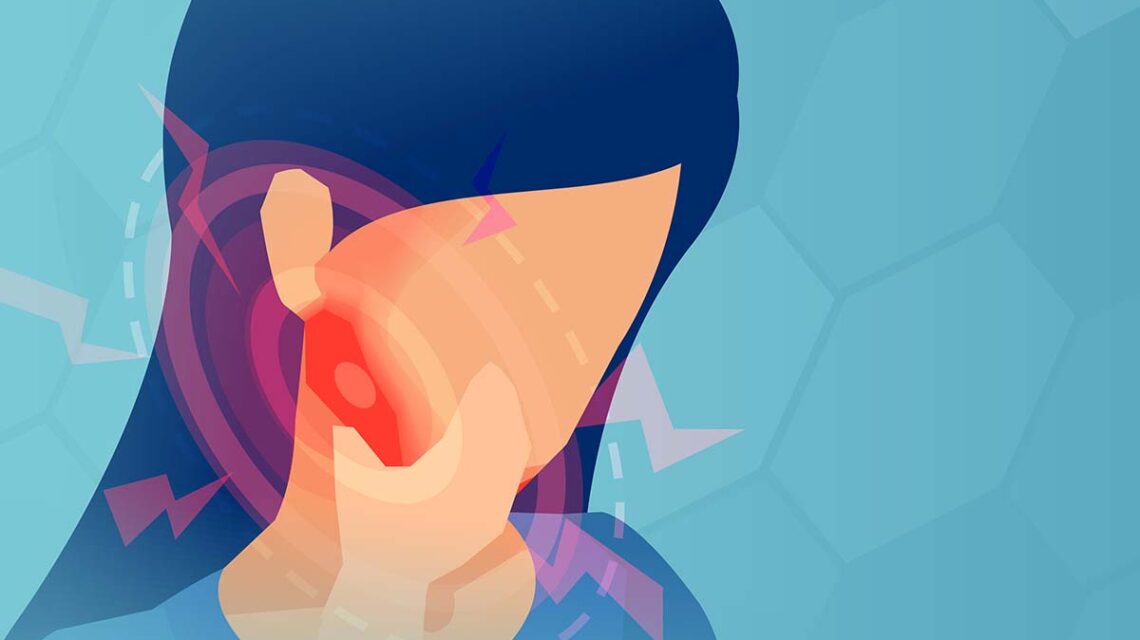Symptoms of temporomandibular disorder (TMD) include pain in the face’s jaw, muscles, or jaw joint that controls chewing and jaw movement.
One’s temporomandibular joint (TMJ) might be a source of TMD symptoms. We are willing to yawn, talk, and chew because of the extraordinary mobility of the temporal-mandibular joint (TMJ), which connects the lower jaw to the frontal bone of the skull.
In most of our best TMJ treatments near me in West Hollywood, clients have asked us, “Is TMJ condition serious?” after being confirmed with temporomandibular joint disease (TMD). The short answer is that while the disease is not fatal, it may have severe oral and general health consequences. Ligaments and muscles help support the jaw bones so you can move your chin.
What TMJ Means
The TMJ is the jaw joint where the lower and upper jaws meet. The temporomandibular joints are situated in front of each ear, on either side of the face. The TMJs facilitate activities like eating and talking by connecting the bottom jawbone of the skull.
The Reasons TMD Occurs
Research has found that there are a few common triggers for TMD. Stress could be brought on by grinding or clenching one’s teeth, which places extra strain on one’s ligaments and joints. Tense face and jaw muscles are common stress responses.
People with TMJ have an increased risk of developing rheumatoid and osteoarthritis arthritis. The lubricating cushion or disc between the joint’s socket and the ball could have shifted, causing this.
Symptoms
TMD is a significant health problem. Even though the root of TMD is still a mystery, there are telltale symptoms that you should be aware of.
You may have TMD if you’ve recently experienced pain, discomfort in your jaw, neck, or head, and trouble chewing. Pain that comes and goes may still indicate a problem exists, though. Pressure in the face and jaw, ranging from mild to intense, is often the initial sign of TMD.
If you have trouble or can’t feel your teeth, it could indicate jaw injury, which can cause your teeth to shift out of place. It cannot be easy to close your mouth properly because of this.
Common symptoms of TMD are subtle. Gentleness around the jaw is a common early sign that the best TMJ treatment near me in West Hollywood can address. This may signal the onset of a more severe symptom. When attempting to diagnose TMD, it is crucial to pay close attention to your body and be awake.
Risk Factors
Some variables increase a person’s likelihood of developing TMD. Past arthritic issues or injuries to the jaw, neck, or head increase the risk of damage.
Nighttime teeth grinding or clenching can potentially lead to temporomandibular joint disorder (TMD). Considering TMD develops when the jaw cannot work in harmony with the surrounding joints, issues anywhere in the head and neck might increase a person’s vulnerability to developing the condition.
Natural Relief
Some symptoms of TMD can be alleviated without resorting to drugs. In most cases, the discomfort of TMD may be traced back to a misalignment in any of the bones that make up the spine. Supraclavicular chiropractors have specialized training to detect and adjust for even the tiniest misalignments, which often results in pain relief and restoration of proper bone structure.
How Untreated TMJ Affects Health
Jaw pain, headaches, and neck pain are all temporomandibular joint disorder (TMJ) symptoms. Signs like these can be reduced or eliminated with treatment, as could other health problems that could otherwise lower your standard of living:
Bruxism
Severe clenching of the teeth or jaw grinding is called bruxism. Bruxism may be a symptom of TMD, and TMD may be a symptom of bruxism. A tight jaw, sore jaw, and sometimes pain radiating to the head, upper back, and neck are all symptoms of this illness.
Dental erosion
Patients with bruxism may experience wear and damage on their teeth, including flattened biting surfaces and microscopic cracks, as the condition worsens.
Headaches
If TMD isn’t addressed, it can lead to migraines and other painful headaches.
Malnutrition
Those experiencing increasing jaw pain could decide to make dietary changes, such as limiting their consumption of tough or chewy foods. Clients with significant discomfort may avoid solid food in favor of liquids, which might cause them to become malnourished.
Bone Mass and Jaw Cartilage Loss
If treated improperly, TMD could lead to an irreversible jaw injury, so you must find the best TMJ treatment near me in West Hollywood. In addition to the jawbone eroding, wear and tear on the cushioning that cushions the joint can cause it to become unstable. The result is painful jaw irritation and an increased risk of dislocation.
Hearing Complications
One can find both of their jaw joints directly behind their ears. Tinnitus and loss of hearing could be caused by inflammation of the joints and the nerves that supply them.
Altered Facial Presence
Extreme TMD may cause jawbone erosion, which might alter facial proportions if left untreated for too long.
Effects on the Mental Health
Patients suffering from TMD-related pain may get relief from pain relievers. To alleviate the discomfort, patients could have to raise their dosage with time, which could have serious consequences, but it can be treated with products like Botox for TMJ treatment.
One study from 2016 also linked TMD to psychiatric issues like depression and anxiety. Individuals with TMD who also have risk factors for depression and anxiety should be treated for both conditions, according to the study’s findings.
FAQs
How To Reduce the Risk of TMJ?
Your bite, for example, may be entirely beyond your control and cause you to experience TMJ signs. On the other hand, there are situations in which you might be able to lessen your chances of developing TMJ disorder by:
Maintaining an Upright Posture
Consider using a night shield if you grind or clench your teeth at sleep. Having good mouth protection while engaging in sports injuries. It’s essential to learn and use strategies for relieving tension and stress.
When To Consult a Physician for TMJ Disorders?
Seeing a doctor as soon as possible is recommended if you feel any telltale signs of TMD, including pain in the jaw, trouble opening your mouth, or popping or clicking sounds when you move your jaw. If you have a history of teeth grinding or clenching, which can cause TMJ problems, you must also schedule a visit to treat with Botox for TMJ treatment.
Is It Possible That the TMJ Issue Might Resolve Itself?
Depending on the root cause, this may be the case. When, for instance, you experienced a transient stress-related TMJ flare-up, your signs will likely dissipate once the stressor is no longer present.
On the contrary, if your TMJ pain results from jaw dislocation or how your teeth fit properly, you would likely have ongoing issues that can only be resolved by seeking therapy from the best TMJ treatment near me in West Hollywood.
What Are the Consequences if the TMJ Issue Isn’t Addressed?
Inflammation and chronic pain are just two of the severe side effects of ignoring TMJ dysfunction. Problems with tooth erosion, bite, and chronic illnesses, including insomnia, sleep apnea, anxiety, and depression, are all possible results.
Where Can I Find Out How To Treat My TMJ Condition, So It Goes Away for Good?
TMJ dysfunction is treatable with the help of a qualified professional and using tested products like Botox for TMJ treatment. Going in for an examination with your doctor is the first thing to do. It’s preferable to start treatment before the situation worsens.
Conclusion
Faced with TMD, one is faced with a severe, painful, and potentially life-altering condition. Yet, if you know the warning signs, you could avoid the disorder altogether by employing these strategies. A dentist can assess the situation and suggest the best course of action. Get in touch with someone close by to make your teeth and life happier.






